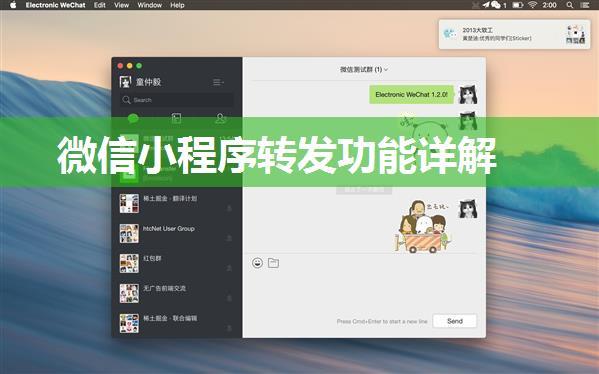I'd be happy to help you understand why sharing URLs in WeChat is often blocked or intercepted, and provide some tips on how to bypass these restrictions.
Why are URLs blocked in WeChat?
WeChat, as a popular social media platform in China, has implemented various measures to prevent spam, phishing, and other malicious activities. One of the key strategies is to block or intercept suspicious URLs that may pose a threat to users' security or experience. This includes:
1. Domain name filtering: WeChat uses algorithms to analyze domain names and block those that are deemed suspicious or have been associated with malicious activities.
2. URL scanning: When you share a URL in WeChat, the platform scans it for potential threats, such as malware, phishing pages, or other harmful content.
3. User reports: If users report a URL as spam or malicious, WeChat may block or intercept subsequent attempts to access that URL.
Why are some URLs more likely to be blocked than others?
Some factors can increase the likelihood of a URL being blocked in WeChat:
1. Domain age and reputation: Newer domains or those with poor reputations may be more likely to be blocked.
2. Keyword filtering: WeChat uses keyword filters to detect suspicious keywords, such as those commonly used by spammers or scammers.
3. URL structure: URLs with unusual structures or characters may trigger WeChat's algorithms and lead to blocking.
How can you bypass URL restrictions in WeChat?
While there is no foolproof way to guarantee that your URLs will be shared without being blocked, here are some tips to increase the chances of success:
1. Use reputable domains: Stick to well-established and reputable domains to reduce the likelihood of being flagged as suspicious.
2. Avoid using keywords: Refrain from using keywords commonly associated with spam or malicious activities in your URL text.
3. Use URL shorteners: Shortening URLs can help avoid triggering WeChat's algorithms, but be cautious when using third-party services.
4. Create a custom QR code: Instead of sharing a URL directly, create a custom QR code that links to the desired page. This can help bypass some restrictions.
5. Use WeChat's built-in features: Utilize WeChat's built-in features, such as its " Moments" or "Article" functions, which may be less likely to trigger blocking algorithms.
6. Test and refine: Test your URLs in a controlled environment before sharing them publicly, and refine your approach based on the results.
Additional tips for marketers and promoters
If you're using WeChat for marketing or promotional purposes, here are some additional tips:
1. Use official accounts: If possible, use official WeChat accounts to share content, as these are less likely to be blocked.
2. Create engaging content: Focus on creating high-quality, engaging content that resonates with your audience, rather than relying solely on URLs.
3. Monitor and adjust: Keep an eye on your URL sharing performance and adjust your approach based on the results.
Conclusion
While WeChat's URL restrictions can be frustrating, understanding the reasons behind them and using the tips outlined above can help you increase the chances of successfully sharing URLs in this popular social media platform. Remember to always prioritize user experience and security when promoting content online.




